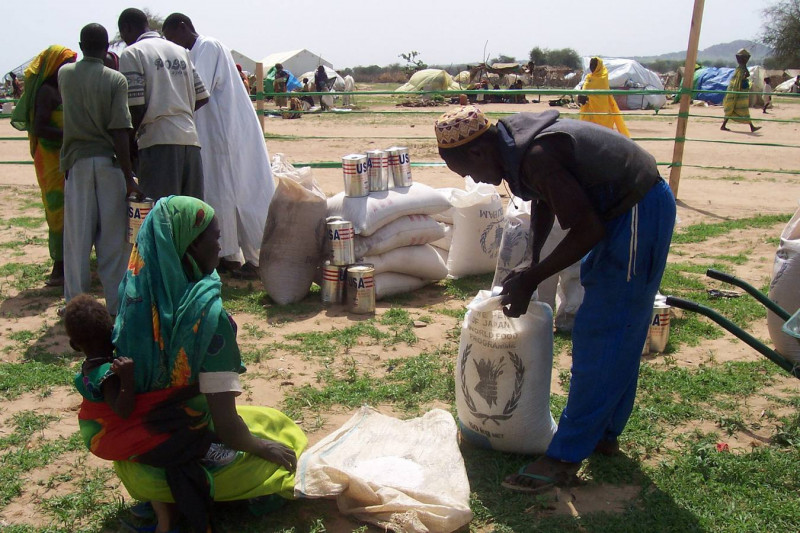On February 9, the new Manos Unidas 2017 Campaign against hunger in the world will be launched throughout Spain under the slogan: "The world does not need more food. It needs more committed people".
–Clara Pardo. President of Manos Unidas
FAO claims that enough food is produced to feed almost twice the world's population. However, some 800 million people still go hungry today and their fundamental right to safe, sufficient and nutritious food is not truly recognized. We are facing the "paradox of abundance," as St. John Paul II said: there is food for everyone, but not everyone has access to it. Pope Francis defines the situation as a "grave scandal". In fact, every year hunger kills more people than AIDS, malaria and tuberculosis combined.
That is why on Thursday, February 9, the Campaign against Hunger in the World 2017 promoted by Manos Unidas will be launched throughout Spain with the slogan: "The world doesn't need more food. It needs more committed people." and within the overall framework of the "Manos Unidas Triennial Campaign Against Hunger 2016-2018".. The following day, the Voluntary Fasting Day. And on Sunday, February 12, a collection will take place in all parishes for Manos Unidas, a non-governmental organization for development, of volunteers, Catholic and lay, and Association of the faithful of the Catholic Church in Spain to help disadvantaged peoples.
Throughout the rest of February in the 71 diocesan delegations there will be events, conferences and testimonies of missionaries, lay people and specialists to sensitize society to the scandal/paradox of hunger and the need for committed, generous and supportive people.
The Campaign Against Hunger has been celebrated for almost 60 years, when a group of Catholic Action women in Spain took up the declaration of "war against hunger in the world" and launched the first Campaign in tune with the manifesto of the World Organization of Catholic Women's Organizations (WUCWO). But despite the efforts made, hunger remains a complex and pressing problem. Manos Unidas approaches it from a concrete reflection and in the ethical-legal framework shared with relevant institutions such as FAO, because in reality hunger escapes a mere statistical reflection and becomes a call to universal awareness in the face of a human problem that should be a matter of urgency for everyone.
The geography of hunger points primarily to developing countries, where nearly 13% of the population is undernourished. Two-thirds of all hungry people are in Asia. However, sub-Saharan Africa is the region of the world with the highest percentage of hungry people: one in four people is undernourished and this is the cause of 45 % of deaths of children under five years of age - more than three million each year. One in four children in the world is stunted; this figure rises to one in three in developing countries. In these countries, 66 million children go to school hungry. These are unacceptable figures that cry out for a firm and decisive commitment.
The reduction of food to "commodities", a production system that privileges economic profit over people and their right to food, and the problem of food loss and waste are some of the fundamental causes of hunger. Causes that are linked to individualistic lifestyles, focused on consumption and inadequate commercial and distribution systems.
It is in the developed world and in households that the scandalous volume of waste is produced. In Spain, of the 8 million tons wasted annually, more than 60 % comes from the domestic sphere (63 kg per person per year!). Hunger is a real fact, an ethical-social problem that needs the commitment of all: States, Administrations and citizens, with solidarity, without selfishness.
Manos Unidas bases its action on the Gospel, the Social Doctrine of the Church and the directives of the Popes. And it bases its fight against hunger and the causes that provoke it, aware that they are multi-causal, from the analysis of the unsustainability of the current model, expressing the urgency of a global model of sustainable agricultural production and consumption, outside the networks of speculation, but open to fair trade. In addition, an agricultural production that respects the environment and guarantees local consumption. And an integrated use of agricultural production that minimizes food losses, especially in developing countries, particularly at harvest, storage and transport, and controls food waste, particularly in developed countries, by improving distribution, labeling and consumption patterns.
To combat the hunger that condemns the present and future lives of millions of people, in 2015, Manos Unidas materialized 595 new projects worth 38,903,487 euros which, when added to those initiated in previous years, give a total of total of 938 projects in progress at 58 countries in Africa, Asia and the Americasof which the following benefit more than two million people. The most supported sector was the educational with 219 projects, followed by social promotion (104), health (103), promotion of women (85) y agricultural (84).
And in order to continue this battle, Manos Unidas appeals, from these lines, to the commitment of Spanish society, because "The world does not need more food. It needs more committed people".












